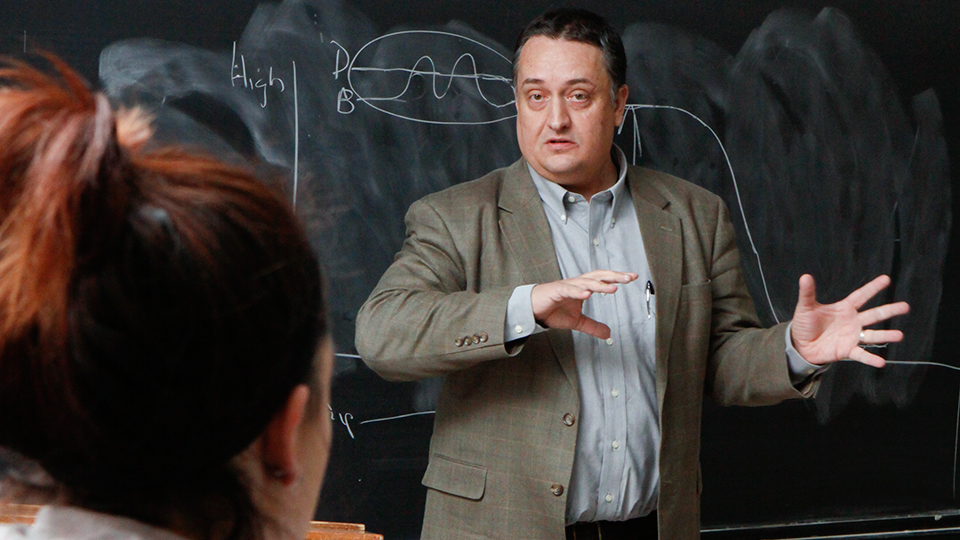by David Pavlak ’13, MA ’14
Photo Gallery
Learn More about Rider's Criminal Justice Major
Sociology Professor Explains New Criminal Justice Major
As a child, Dr. Victor Thompson (Ph.D., Stanford University) spent weekends visiting his stepfather in prison. As a result, Thompson acquired an interest in the criminal justice system. Now an assistant professor in the Department of Sociology, Thompson has channeled his energy and passion into the design and creation of the new criminal justice major at Rider.
Your specialization is in criminal justice, race and sociology. What made you want to pursue this area of study?
Mostly, I would say that I am a sociologist who does work on racial attitudes and political and social policy attitudes as they relate to the criminal justice system. I grew up, if you will, “in the system,” as a child of someone who was incarcerated. When I was young, I thought the best route to doing something in the criminal justice system would be to pursue a law degree, not fully understanding what lawyers actually did. I lost interest in the law during high school and pursued other interests, though never really losing interest in criminal-justice related issues.
Tell me about the new criminal justice major at Rider. What areas will students have the opportunity to explore?
It’s a growing major and I wouldn’t be surprised to see 300 to 400 students enrolled in the future. The United States incarcerates the largest percentage of its population of any country in the world. There will be a growing demand for students in this area, if for no other reason than the very fact that the institution itself is so huge. In terms of our major, it’s unique because we cross a lot of disciplines. For example, having classes in law, sociology, philosophy, psychology, political science and other disciplines allows students to pursue a variety of interests that intersect with whatever part of the criminal justice system they are most interested in professionally.
How do you think Rider’s proximity to Trenton, the Capitol Complex and the courthouses will have an impact on this program?
We are already starting to see responses because of our proximity to these areas. The director of the law and justice program, Dr. Ava Baron, is fielding calls and emails from people who are in those places and are interested in drawing on some of our students for internships or asking about seniors who might be looking for jobs. In addition, Dr. Baron has developed over the years a number of relationships with local and state institutions where students have already been doing internships as part of the law and justice program. Being close to the center of power in New Jersey gives students a wide range of opportunities that include traditional police department-type internships and internships within the Department of Corrections and also opportunities to work with drug courts or with former inmates in post-release programs and in an infinite number of places that interact in some way with the criminal justice system.
Where would you like this program to be 10 years from now?
We will continue to nurture it to enhance these opportunities for incoming students. In terms of the impact outside of Rider, we’re striving to build relationships with organizations and institutions both in state and local government, and also community organizations working on issues that intersect with the criminal justice system. In the next five years, I’m confident you will see some of those relationships grow and, with a little bit of luck, hard work and great students, we will become a major contributor to thinking about criminal justice policy in the New Jersey area and beyond.

